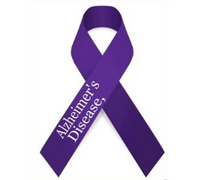AAN Issues Guideline on When People with Alzheimer's Disease Should Stop Driving
 |
TORONTO - April 12, 2010: The American Academy of Neurology has issued a new guideline to help determine when people with Alzheimer's disease or another type of dementia should stop driving. The guideline is published in the April 12, 2010, online issue of Neurology®, the medical journal of the American Academy of Neurology, and was presented at the American Academy of Neurology's Annual Meeting in Toronto.
"While some people with dementia can still drive safely for a time, nearly all people with dementia will eventually have to give up driving," said lead guideline author Donald J. Iverson, MD, with the Humboldt Neurological Medical Group, Inc. in Eureka, Calif., and Fellow of the American Academy of Neurology. "It's important for doctors to discuss this soon after the diagnosis since restricted driving will affect the patient's quality of life and may lead to other health concerns such as depression."
Evidence shows driving skills deteriorate with increasing dementia severity. "While patients with mild dementia, as a group, are higher-risk drivers, more recent studies report that as many as 76 percent are still able to pass an on-road driving test and can safely drive," said Iverson. "Faced with these facts, we needed to provide guidelines for doctors caring for these patients to identify those at higher risk of unsafe driving, without unnecessarily restricting those who are safe drivers."
The guidelines also found that caregivers should trust their instincts. Caregivers and family members play a role in identifying warning signs from unsafe drivers with dementia. These include:
-- Decreased miles being driven
-- Collisions
-- Moving violations
-- Avoiding certain driving situations, such as driving at night or in
the rain
-- Aggressive or impulsive personality traits
"It is important that the decision to stop driving be directed by a doctor who is trained and experienced in working with people with dementia and their families," Iverson said. The guideline is an update of the 2000 American Academy of Neurology guideline on driving with dementia.
The American Academy of Neurology, an association of more than 22,000 neurologists and neuroscience professionals, is dedicated to promoting the highest quality patient-centered neurologic care. A neurologist is a doctor with specialized training in diagnosing, treating and managing disorders of the brain and nervous system such as Alzheimer's disease, Parkinson's disease, ALS (Lou Gehrig's disease), multiple sclerosis, stroke and migraine.


